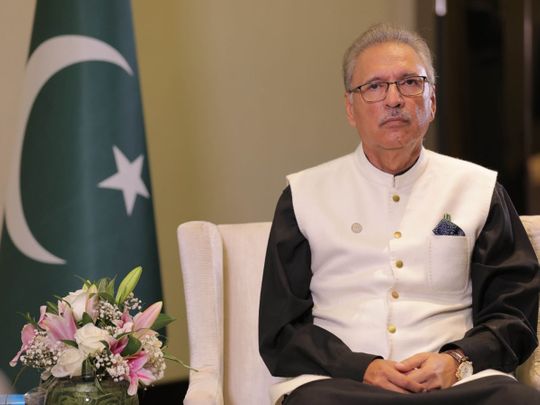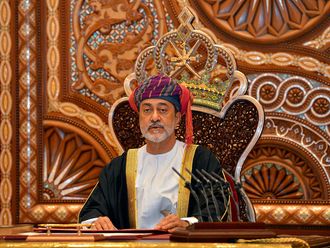
ISLAMABAD: President Dr Arif Alvi on Saturday returned a bill that aimed at clipping the powers of the Chief Justice of Pakistan (CJP) with regard to taking suo motu notice and has proposed giving the right to appeal in all suo motu cases with retrospective effect.
The president has asked the Parliament to reconsider it.
The proposed legislation is beyond the jurisdiction of the legislative body and is susceptible to challenge as a specious enactment, said the president while returning the bill.
“The Supreme Court (Practice and Procedure) Bill, 2023 travels beyond the competence of the Parliament and can be assailed as a colourable legislation,” the president said in his reply which he also posted on social media.
The proposed legislation deprives the office of the Chief Justice of Pakistan (CJP) of powers to take suo motu notices in his individual capacity.
The bill says that instead of one-man show, a three-member committee comprising the CJP and two senior-most judges should be formed for allocation of such cases.
According to the Federal Law Minister Azam Nazeer Tarar, the right of appeal had been given under new legislation, which he said was a long-standing demand of bar councils and associations of Pakistan. He said that one had to keep room for an amendment to the law to meet the needs of the people in accordance with contemporary needs.
After the National Assembly of Pakistan, Pakistan’s Upper House of the Parliament (Senate) had also passed the bill on March 30 and under the procedure, the bills once passed by the National Assembly and Senate are sent to the president for assent, after which they become an act of parliament.
If the president doesn’t approve a bill within 14 days, it is deemed to have been passed. However, the president as was anticipated by the government circles, has refused to sign the bill and in his detailed reply, which he also posted on Twitter noted that he thought it fit and proper to return the bill in accordance with the constitution, with “the request for reconsideration in order to meet the scrutiny about its validity (if assailed in the court of law).”
He underlined that Article 191 of the Constitution empowered the Supreme Court “to make rules regulating the practice and procedure of the Court”.
The president has also noted that under the constitution, the Supreme Court Rules 1980 have been made and in force duly validated - and adopted by the Constitution itself.” This indicates that these rules have been validated and adopted by the Constitution itself.
Bill to compromise apex court’s autonomy
Alvi cautioned that any attempt to modify or tamper with these rules could be viewed as interference with the internal workings of the court, which could compromise its autonomy and independence.
The constitution of Pakistan is founded on the concept of trichotomy of power — three pillars of the state whose domain of power, authority and functions were defined and delineated by the Constitution itself.
Pakistan people’s Party (PPP) senior leader and Minister for Climate Change, Senator Sherry Rehman has termed President’s move unfortunate and declared that he was still acting as Secretary General of Imran Khan’s party Pakistan Tehreek-e-Insaf (PTI) instead of the head of the state.
On the other hand, PTI leader Fawad Hussain Chaudhry has advised the government to “breathe, think and make amendments in its politics rather than making amendments in the constitution. No one will accept amendments [made] in such a hurry.”












